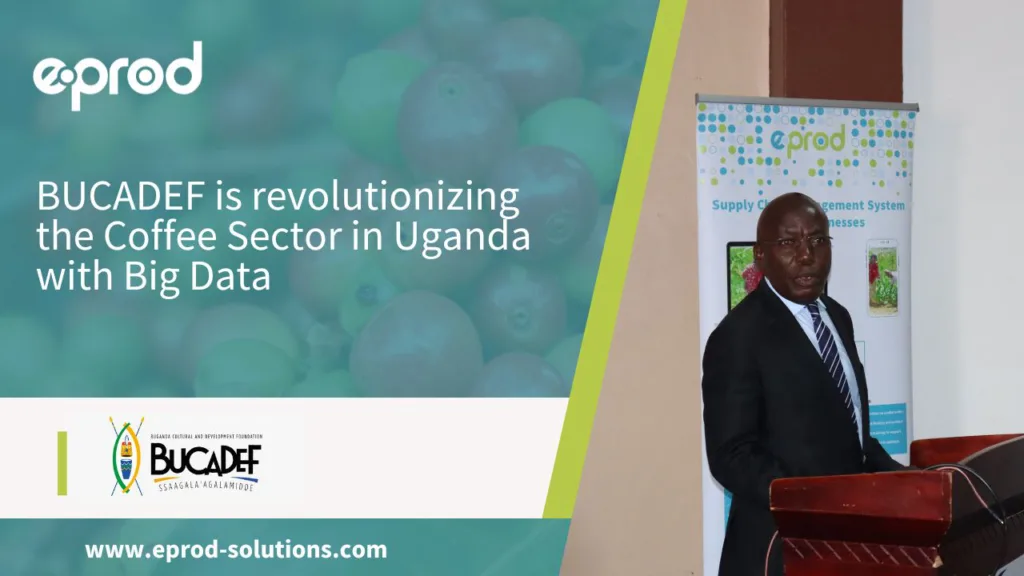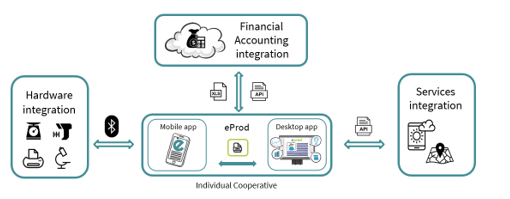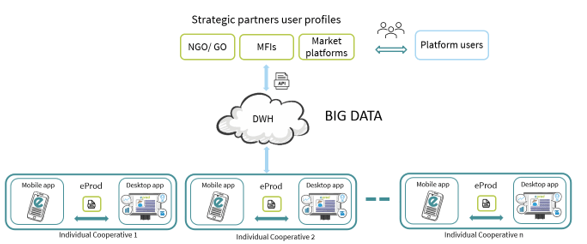
In the highly dynamic world of coffee, the emergence of Big Data is revolutionizing the sector. The Kingdom of Buganda is a traditional Kingdom in Uganda that has recently ventured into coffee processing and trading. On 6th April 2023, honourable Hajj Ishak Kasule Lukenge, in the capacity of the Minister of Finance, Planning and Economic Development of the Kingdom of Buganda, opened officially the Big Data platform developed by the Buganda Cultural and Development Foundation, or BUCADEF, Africa Coffee Academy, or ACA, and eProd Solutions. It marked the end of a beautiful project co-funded by the Coffee Innovation Fund under the German Development Cooperation (GIZ), and the beginning of many new opportunities for the coffee sector in Uganda. During this period, showcased their ground-breaking Big Data Platform to their partners and sector stakeholders. “With this ground-breaking Big Data Platform, we aim to empower coffee cooperatives, such as NGOs, BUCADEF and coffee traders, Kampala Domestic Stores, or KDS by providing real-time data, transparency, and traceability. Five coffee cooperatives are using the supply chain management platform eProd to manage their daily operations and feed information live into the platform”, says Rebecca Ebou, Client Relations’ Officer in the eProd Uganda team.
The Big Data Platform that has been created provides a gateway for coffee cooperatives to unlock a range of opportunities. This platform serves as a vital link, connecting farmers with financial institutions, agro-advisory services, carbon offsetting programs, international markets, and much more. eProd enables the cooperatives to manage daily operations with their members and stakeholders, see diagram below.

With real-time data, transparency, and traceability at their disposal, coffee cooperatives can harness the power of Big Data to drive improvements in production and international marketing.

Real-time data is a game-changer for coffee cooperatives, enabling them to make informed decisions. With access to this invaluable information, cooperatives can optimize their farming practices by monitoring weather forecasts and yield estimation and adjusting their strategies accordingly. By this, cooperatives can enhance productivity, minimize waste, and boost profitability.
Transparency and traceability have become paramount in the coffee industry, as consumers and buyers increasingly prioritize ethical sourcing and sustainable practices. The introduction of the international supply chain law in the EU is becoming even more important. The EU Supply Chain Law is a new regulation that aims to hold companies accountable for any environmental harm and human rights violations that occur along their value chain, from production to sale. It requires companies to identify and assess risks, implement a strategy to respond to them, conduct audits and report yearly on their due diligence. See also publication Towards a mandatory EU system of due diligence for supply chains (europa.eu)
Big data enables the cooperatives to partner with international coffee traders and to meet these demands head-on by providing a comprehensive record of a coffee’s journey from farm to exporter. By capturing and storing data at each stage of the supply chain, cooperatives can ensure the integrity and quality of their products. This newfound transparency fosters consumer trust and differentiates cooperatives in a competitive market.
As we usher in this new era of opportunities, coffee cooperatives have a remarkable chance to thrive in an industry that demands precision, efficiency, and sustainability. By embracing the power of big data, cooperatives can leverage real-time data insights, transparency, and traceability to revolutionize their production processes and international marketing strategies. With a solid foundation laid by the eProd Big Data Platform and the support of visionary partners, the coffee sector is poised for a brighter and more prosperous future.
For more information, please reach out to info@eprod-solutions.com.
Background information: The Coffee Innovation Fund, financed by the German Federal Ministry for Economic Cooperation and Development (BMZ), and implemented by GIZ, supports pioneering projects that make coffee cultivation more profitable for farmers in innovative ways.
